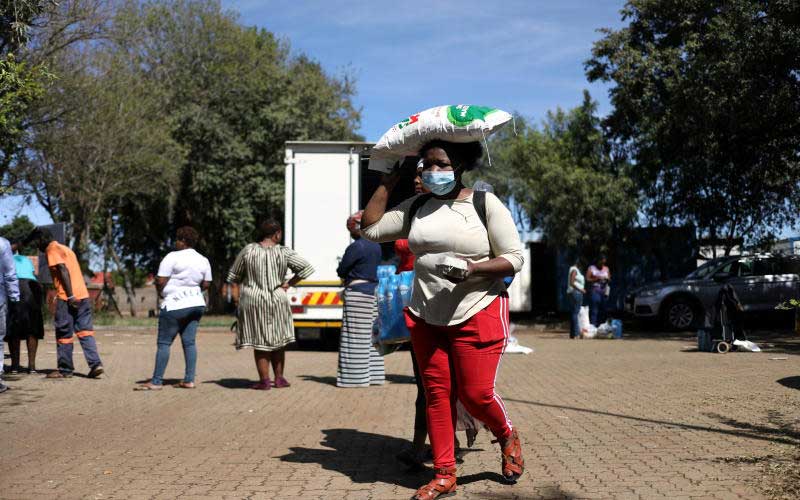×
The Standard e-Paper
Fearless, Trusted News

A woman carries a bag of maize meal during the distribution of food parcels to vulnerable residents by the local government during a 21-day lockdown due to spread of Covid-19 in Johannesburg's township of Soweto, South Africa. [Reuters]
As South Africa prepares to lift a tight lockdown, the expert leading the fight against coronavirus said the restrictions have paid off but warned of a possible surge of cases in July and overwhelmed hospitals.